There is always much to learn from quotes and their historical significance. Read on for a collection of quotes and general history from November 17th – 23rd.
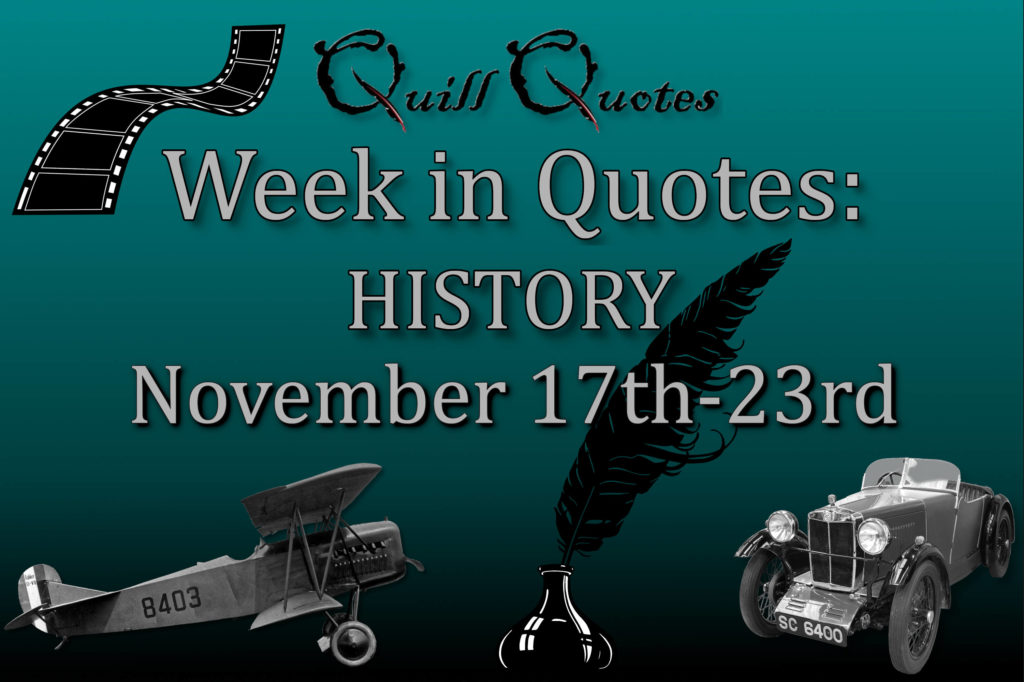
November 17, 1558
“[At a time] when wars and seditions with grievous persecutions have vexed almost all kings and countries round about me, my reign hath been peacable, and my realm a receptacle to thy afflicted Church. The love of my people hath appeared firm, and the devices of my enemies frustrate.”
– Elizabeth I
On November 17, 1558, Elizabeth I ascended to the English throne following the death of her half-sister, Mary I. Mary’s ruthless attempts to reverse the English Reformation and re-establish Roman Catholicism in England had earned her the name “Bloody Mary”. However, these attempts were for naught with Elizabeth establishing herself as the Supreme Governor of the Church of England as one of her first acts as queen. Elizabeth I never married, becoming the last of the five monarchs of the House of Tudor and, therefore, is sometimes called the Virgin Queen. Her 44-year reign has become known as the Elizabethan era, marked by relative tolerance and stability.

November 18, 1626
“St Peter’s Basilica is the reason why Rome is still the center of the civilized world. For religious, historical, and architectural reasons it by itself justifies a journey to Rome, and its interior offers a palimpsest of artistic styles at their best.”
– Helen F. North
St. Peter’s Basilica in Vatican City was consecrated on November 18, 1626. Held as the burial site of Saint Peter, one of Jesus’s Twelve Apostles and the first Pope, St. Peter’s Basilica is one of the four major basilicas, or highest-ranking Roman Catholic church buildings. Construction began in 1506 to replace Old St. Peter’s Basilica, which had stood on the site since the 4th century. Often considered the most renowned work of Renaissance architecture, St. Peter’s was primarily designed by Donato Bramante, Michelangelo, Carlo Maderno, and Gian Lorenzo Bernini. As the largest church in the world, it has been described as “the greatest of all churches of Christendom”.
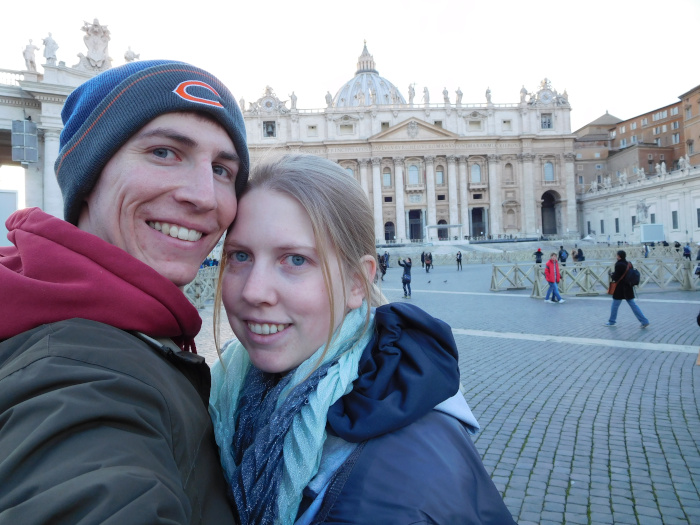
November 19, 1863
“Four score and seven years ago our fathers brought forth on this continent, a new nation, conceived in Liberty, and dedicated to the proposition that all men are created equal.
Now we are engaged in a great civil war, testing whether that nation, or any nation so conceived and so dedicated, can long endure. We are met on a great battle-field of that war. We have come to dedicate a portion of that field, as a final resting place for those who here gave their lives that that nation might live. It is altogether fitting and proper that we should do this.
But, in a larger sense, we can not dedicate—we can not consecrate—we can not hallow—this ground. The brave men, living and dead, who struggled here, have consecrated it, far above our poor power to add or detract. The world will little note, nor long remember what we say here, but it can never forget what they did here. It is for us the living, rather, to be dedicated here to the unfinished work which they who fought here have thus far so nobly advanced. It is rather for us to be here dedicated to the great task remaining before us—that from these honored dead we take increased devotion to that cause for which they gave the last full measure of devotion—that we here highly resolve that these dead shall not have died in vain—that this nation, under God, shall have a new birth of freedom—and that government of the people, by the people, for the people, shall not perish from the earth.”
– Abraham Lincoln, Gettysburg Address
On November 19, 1863, one of the most famous speeches in American history was delivered by President Abraham Lincoln, the Gettysburg Address. Although the primary speech of the day was delivered by Edward Everett, Lincoln was able to honor the fallen soldiers at Gettysburg and summarize his feelings on the Civil War in just two minutes, with the 272 words quoted above. With five known manuscripts of the Gettysburg Address prepared by Lincoln, his exact phrasing has long been debated by historians. However, the Bliss copy, named for Colonel Alexander Bliss who received it from Lincoln, is often viewed as the standard version. Despite being written well after the speech, it is the only copy signed by Lincoln and is the version inscribed on the Lincoln Memorial.
November 20, 1998
“We’ve learned a lot by building the International Space Station, the good, the bad. But, the fact is is that working together as a team, unity aboard that space station, we can accomplish great things.”
– Gene Kranz
On November 20, 1998, the first module of the International Space Station (ISS) was launched. This first module was named Zarya, meaning sunrise, to signify the dawn of a new era of international cooperation in space! Initially, Zarya provided electrical power, propulsion, and guidance during ISS assembly, but is now primarily used for storage. Many additional modules have since been added to create the ISS we know today. Covering the area of a football field and weighing nearly 1 million lbs., the ISS is by far the largest human-made object in space with additions continuing to be made periodically!
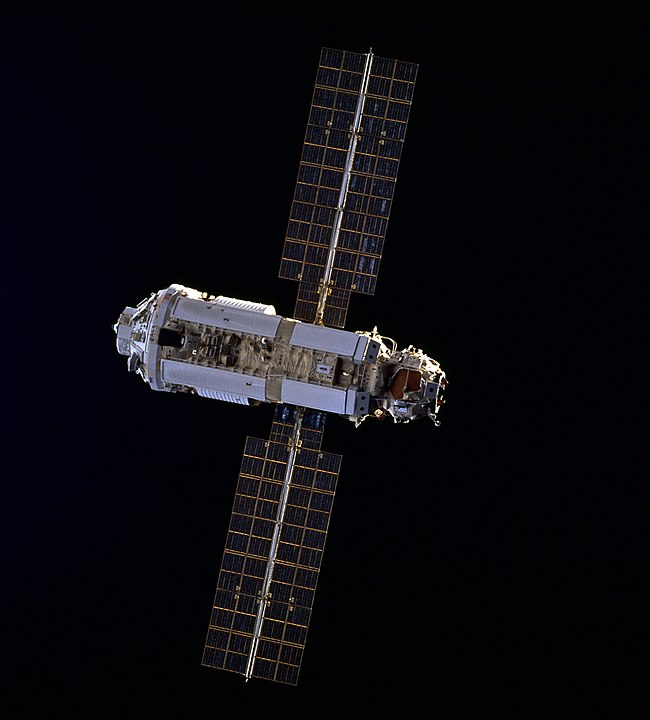
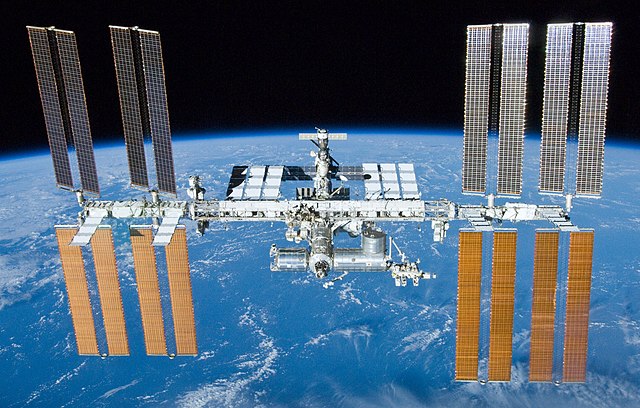
November 21, 1620
“Having undertaken for the Glory of God, and Advancement of the Christian Faith, and the Honour of our King and Country, a Voyage to plant the first Colony in the northern Parts of Virginia; Do by these Presents, solemnly and mutually, in the Presence of God and one another, covenant and combine ourselves together into a civil Body Politick, for our better Ordering and Preservation, and Furtherance of the Ends aforesaid: And by Virtue hereof do enact, constitute, and frame, such just and equal Laws, Ordinances, Acts, Constitutions, and Officers, from time to time, as shall be thought most meet and convenient for the general Good of the Colony; unto which we promise all due Submission and Obedience.”
-The Mayflower Compact
The Mayflower Compact, the first governing document of Plymouth Colony, was signed on November 21, 1620. Although the document itself reads November 11th, it used Old Style dates (Julian Calendar) ten days behind today’s Gregorian Calendar. It was written by the passengers of the Mayflower to govern themselves when storms forced them to anchor in Provincetown Harbor at the northern tip of Cape Cod in Massachusetts instead of their agreed-upon destination, the Colony of Virginia. Due to the mix of Puritan and non-Puritan passengers, the Compact was vital to establishing the colony’s rules for the sake of order and survival.
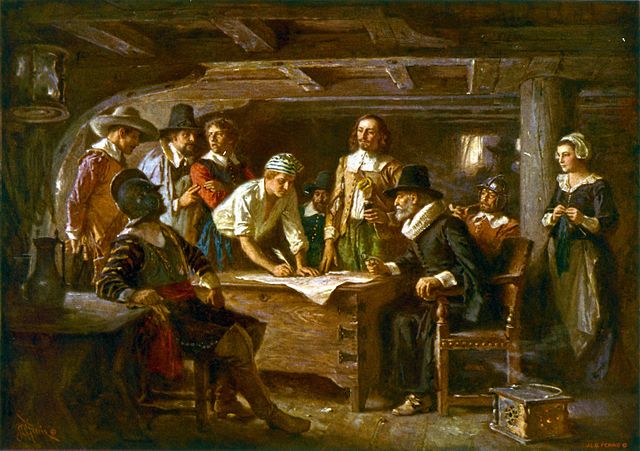
November 22, 1963
“Nearly all Americans felt they knew JFK intimately, his charm and wit regularly lighting up the television screen at home. This is why polls showed that millions of Americans took his assassination like a ‘death in the family’.”
– Vincent Bugliosi
On November 22, 1963, President John F. Kennedy was assassinated by Lee Harvey Oswald in Dallas, Texas. Kennedy was fatally shot by Oswald, a former U.S. Marine, while riding in a presidential motorcade through Dealey Plaza. Texas Governor John Connally, who was riding with Kennedy and both their wives, Jacqueline Kennedy and Nellie Connally, was also wounded but recovered. Oswald was arrested shortly after the shooting. However, two days later, Oswald himself was shot and killed by Jack Ruby during the transfer from city to county jail. Although both Oswald and Ruby were ruled to have acted alone by the Warren Commission after ten months of investigation, widespread speculation continues to this day with numerous Kennedy assassination conspiracy theories.
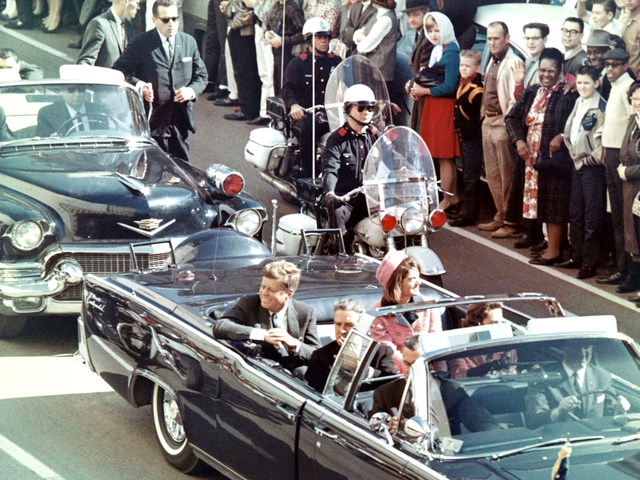
November 23, 1942
“I hope no one will ever have to break that record.”
– Poon Lim
On November 23, 1942, the British merchant ship SS Benlomond was sunk by German U-boat U-172 in the Atlantic. The sole survivor, Poon Lim, then spent the next 133 days in a wooden life raft, setting a record for survival at sea. While the life raft was equipped with some supplies, they quickly ran low and Lim had to rely on fishing, catching seabirds, and rain collection for survival. After drifting closer to land, Lim was rescued by three Brazilian fishermen on April 5, 1943.
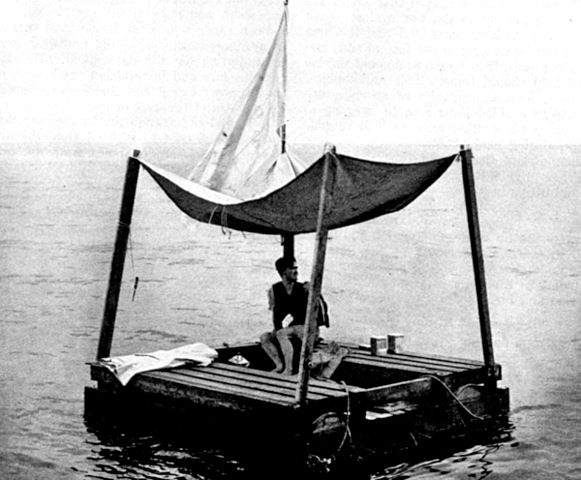
In case you missed last week’s quotes, see History November 10th – 16th.
To never miss a Quill Quotes post, please subscribe via email and/or follow us on social media!
I like the photo of you guys in front of St. Peter’s Basilica, Also like the photos of the ISS showing its growth. Along with the quotes, of course. Good stuff.
Thanks! Visiting Rome and Vatican City was an awesome experience! The growth of the ISS is also pretty incredible.